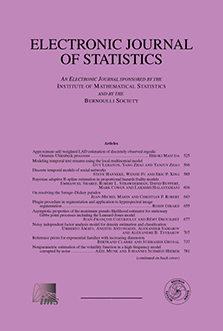Abstract
Tensor regression models are of emerging interest in diverse fields of social and behavioral sciences, including neuroimaging analysis, neural networks, image processing and so on. Recent theoretical advancements of tensor decomposition have facilitated significant development of various tensor regression models. The focus of most of the available literature has been on the Canonical Polyadic (CP) decomposition and its variants for the regression coefficient tensor. A CP decomposed coefficient tensor enables estimation with relatively small sample size, but it may not always capture the underlying complex structure in the data. In this work, we leverage the recently developed concept of tubal rank and develop a tensor regression model, wherein the coefficient tensor is decomposed into two components: a low tubal rank tensor and a structured sparse one. We first address the issue of identifiability of the two components comprising the coefficient tensor and subsequently develop a fast and scalable Alternating Minimization algorithm to solve the convex regularized program. Further, we provide finite sample error bounds under high dimensional scaling for the model parameters. The performance of the model is assessed on synthetic data and is also used in an application involving data from an intelligent tutoring platform.
Citation
Samrat Roy. George Michailidis. "Regularized high dimension low tubal-rank tensor regression." Electron. J. Statist. 16 (1) 2683 - 2723, 2022. https://doi.org/10.1214/22-EJS2004
Information





